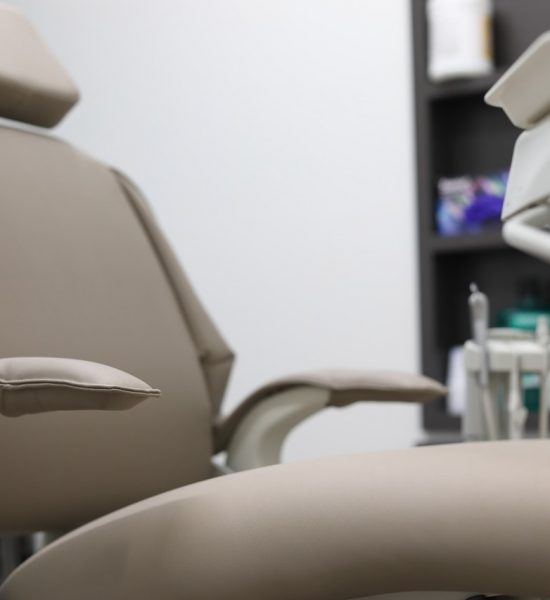You may have found in the past couple of years it has become increasingly difficult to get dentist appointments. We have all heard horror stories of patients with terrible pain and injury that haven’t been able to get the help that they need. Researchers have found that a shocking 32% of dentists and 38% of dental care professionals believe that they will not be practising in 12 month’s time (General Dental Council). The pandemic has caused uncertainty in many professions as new challenges with added pressures are arising. A recent study (BMC Medical) has found that the fundamental concerns in dental education, which is completely reliant on practical lessons, is that virtual training cannot transfer the practical skills that are needed compared to face to face training. Is this why there is a decrease in dentistry students in the UK? Or are there other factors to consider?
Is covid making students feel uncomfortable working in a potentially dangerous environment?
Covid-19 has caused an increase in anxiety and stress across a wide range of professions, especially in health care. The General Dental Council have stated that this could be for a variety of reasons such as the use and fitting of PPE, difficult working environments, a lack of support and feelings of isolation. This can lead to the feeling of great pressure and unease which can discourage students from pursuing dentistry as they may not want to work in this environment.
During the pandemic, dental schools and courses have had to find innovative ways to handle the unprecedented challenges caused by COVID-19. It has been one of the most severely affected professions in the pandemic due to the risk of infection that they would face. When dentists use equipment to drill into a patient’s tooth, there is a small amount of aerosol that gets in the air which contains the patient’s saliva. This can cause severe problems as the risk of infection rises dramatically (Imperial College London).
Although most medical courses were able to adapt to the pandemic, dental and oral health educational courses were greatly impaired due to their proximity to the patient. A survey found that 16.3% of study participants, including dentists, dental nurses and dental hygienists, had Covid-19 antibodies, compared to just 6% of the general population at the time (University of Birmingham). It is understandable that new students may not want to enter a field where there is a higher risk of infection of COVID-19 and other possible viruses.
Has the pandemic caused private dental practices to lose income?
Covid-19 has had a drastic impact on many businesses as they have lost income from customers. A large majority of dental professionals who work in the private sector are experiencing financial stress as a result of the pandemic because restrictions meant we were not supposed to leave our houses to get routine check ups and appointments. Seb Evans from Density in 2020 stated that “The immediate problem is cash flow as patient demand slows down and less income comes into the practice.” At the start of the pandemic, dental practices were struggling to stay open as staff were calling in sick and patients weren’t able to attend their appointments that they had planned. This financial issue has been something that is hard to recover from. It can be unfavourable to focus on an education that does not guarantee a stable position available at the end.
Is there no finance available for graduate students to get a position as a dentist? The General Dental Council found that 35% of business owners expected to employ fewer staff in the next year, this can be a discouraging factor to dental students. It is known that dentistry education requires a lot of commitment and dedication as, depending on your speciality, it can take many years of studying before you are able to graduate. Imagine studying for eleven years to then have struggles of getting that dream job.
Are the current forms of teaching for dental students discouraging?
One of the largest changes in education across many subjects has been the migration over to virtual teaching. This is in the form of online theory, lessons and assessments through computerised presentations, video based practises and virtual models. However, these methods are of limited use within dental education due to its practical nature. A study by BMC found that there is a rising concern for online dental education as it was mostly in the form of online lectures with little practical training content, students are having difficulty feeling motivated working from home and poor internet or technology on both sides of students and teachers can disrupt their learning dramatically.
Many postgraduate students have concerns regarding their graduation requirements as they are worried that they may not have sufficient practical skills to take into the real world.
Is there hope?
In a different light, Covid-19 has provided a good opportunity for students to understand the concepts of a pandemic and learn the importance of global health efforts while growing their understanding of the importance of primary health care workforce role in keeping our society healthy (BMC Medical Education).
As we have found that practical training is a vital part of dental education, the problem of online teaching could be solved to some extent by students using portable tools within their virtual lessons at home and the use of recorded instructional videos from professionals. Students can also conduct more simulated activity on mannequins, improve the airflow in the rooms that they are in and ensure better protective workwear and equipment is worn.
When PPE is worn correctly, it can act as a physical barrier to the transmission of infectious particles from bodily fluids. It will also stop virus transmission through contact with contaminated surfaces and clothing of others. It has been discovered that the use of full PPE is associated with decreased risk of infection compared to partial or no PPE use (Gov.uk). Furthermore, Seb Evans from Dentistry discussed that the use of FFP3 mask reduces the amount of aerosol entry by up to four times compared to not wearing a mask as long as they are well fitted by covering the mouth and nose. Hand hygiene also plays a vital role in reducing the viral transmissions as they must make sure they are sanitising their hands effectively.
Infection control is crucial within dentistry classrooms in providing a safe environment with the students, patients and educators. We need to support each other to be able to meet the challenges presented by the pandemic. Dentistry can be a highly rewarding career, prospective students shouldn’t be missing out.
Even though there are negatives to online learning, there are also many positives. It offers more flexibility to students as they are able to join the lessons from any location. Additionally, online lectures can be recorded and shared for future reference which allows students to learn at a time that is suited to them. Online learning can also suit a variety of learning styles; every student is different as some may prefer to learn visually while others prefer studying through audio. With the range of learning styles available online, it can be personalised in many ways to suit the needs of the student.
Why is dentistry a great career?
Nature.com cited a study on why dentistry is a great career choice. Dental treatment can really help people and their quality of life. This form of goodwill can feel uplifting as you are taking away someone’s pain, changing their life for the better. You may create lifelong relationships with your patients as they come to you for their check ups each year. It is a highly respected profession as patients trust their dentist to provide them with great healthcare.
A career in dentistry can provide a balanced lifestyle between your work, family and friends as you can change your hours to suit those around you. There is the option to choose self employment in dentistry if that is what would suit you best as you can have the freedom to own your own practice and choose how and when you work. A dentist has been consistently ranked as one of the top ten careers in the UK (Kip Nielson). You can have the ability to shape the future of oral health care by engaging in dental education and research. Dentistry can be frequently regarded as an art form as it requires great skill and unique technique. Although it can be considered as a lone profession, it is actually a great team-oriented occupation as you work as a team with either the dental team or health professionals to improve a patient’s oral health.
Overall, a career in dentistry is a great opportunity for many prospective students. We need to get back to inspiring students to choose the path that they want and encourage them that they do have the ability to do anything that they put their mind to. Is dentistry the right career for you?




